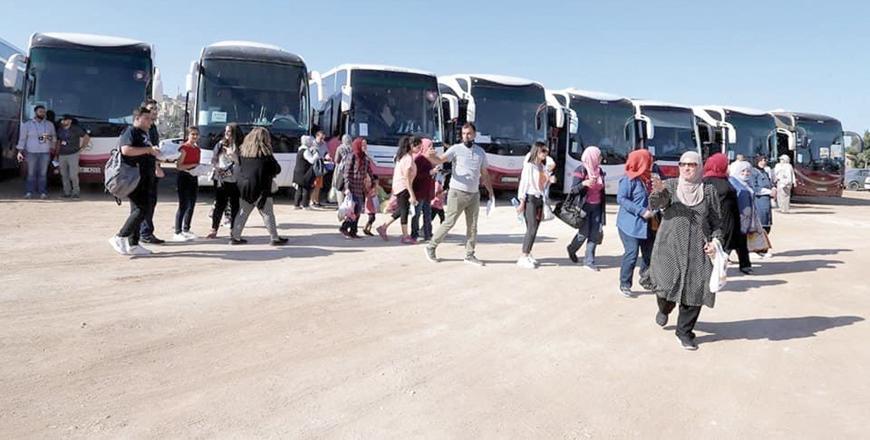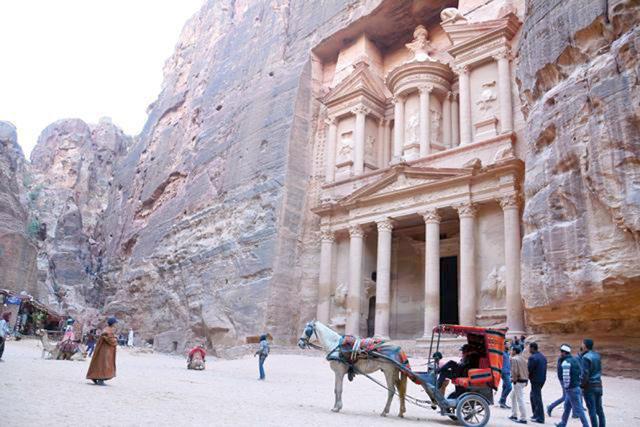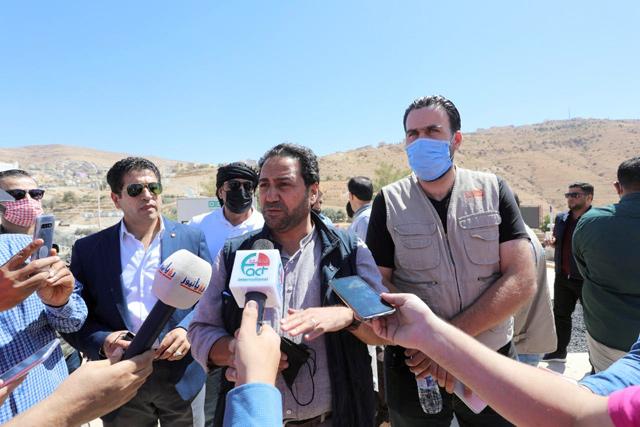You are here
Relying on ‘Urdun Jannah’ experience, JTB seeks to revive in-bound tourism
By Batool Ghaith - Jan 21,2021 - Last updated at Jan 21,2021

The Ministry of Tourism’s ‘Urdun Jannah’ programme, which encourages domestic tourism, offers free transportation (Photo courtesy of Urdun Jannah Facebook page)
AMMAN — The Jordan Tourism Board (JTB) is pinning hopes on reviving the virus-hit sector by encouraging domestic tourism in the initial stage to be followed by boosting in-bound tourism, according to an official.
“Domestic tourism is the only way to establish and revive tourism in general. Domestic tourism will be the first to bounce back and succeed after the pandemic, as it has been happening in other countries,” said Ala’a Al Hindi, the director of digital marketing and communication at the JTB.
Once travelling becomes less restricted to Jordan, and people can travel more freely, in-bound tourism within a five-hour travel radius will witness a boost, Hindi told The Jordan Times on Monday.
The “Urdun Jannah” programme — a joint venture by the Tourism Ministry and the JTB to encourage domestic tourism during the pandemic crisis — was a “success and uplifted the sector”, he said.
The idea behind the fully digitalised programme, with a JD10 million budget, was to subsidise the cost of travel within the Kingdom for Jordanians, Hindi said.
“Urdun Jannah programme helped tour guides who were out of jobs due to the lack of international tourists, as over 800 tour guides participated in it,” the official said.
The JTB and the Tourism Ministry provided free transportation (busses) for locals participating in "Urdun Jannah" trips, which supported the tour operators so they could lower the price of their packages to get more travellers, and also gave discounts on flight tickets to Aqaba, he added.
However, the government’s decision to close down pools and ban buffets as part of efforts to curb the spread of the coronavirus has affected businesses in the Dead Sea area, Mahmoud Yaseen, marketing manager at a tourism company in Amman told The Jordan Times on Monday.
“It was slightly better in Aqaba, as beaches were still open and people could go to the city and do other activities,” Yaseen said.
The hotel reservations rates, in general, went down by approximately 70 per cent, he noted.
“From June till September, the demand was very high. Domestic tourism rates were higher than all the previous years. Wadi Rum was the best destination for local residents more than Dead Sea and Aqaba, as many new camps were launched there,” Yaseen said.
The rose-red city of Petra, some 220 kilometres south of Amman, was the most hit due to the pandemic as it depends fully on international tourists, JTB’s Hindi said.
“All the hotels, restaurants and souvenir shops there struggled and many have closed down. Petra suffered the most because locals did not go there and preferred to go to destinations with pools and beaches. The JTB and the Tourism Ministry encouraged people to go to Petra by agreeing to cover up to 25,000 free hotel rooms in Petra if it was added onto the package in coordination with tour operators,” Hindi noted.
Among the locations that piqued the interest of Jordanians under the “Urdun Jannah” programme include the one-day trip to the Amman railway station (The Hijazi Rail), the JTB official said.
The northern governorates of Ajloun and Jerash were also among the preferred destinations of Jordanians, he said.
“The goal of the Urdun Jannah programme is to introduce local experiences in tours to help the local communities,” Hindi noted.
Though domestic tourism witnessed a boost in recent months, the limitation of capacity in buses and restaurants due to the pandemic remains a challenge. The current weather conditions also do not favour domestic tourism, the official said.
“We are planning to launch the next season of Urdun Jannah programme by spring,” Hindi said.
The JTB made sure all the health and safety measures were followed thoroughly when “Urdun Jannah” launched after the lockdown, he added.
Related Articles
AMMAN — The “Urdun Jannah” programme has mitigated the impact of the COVID-19 pandemic in Jordan’s “Golden Triangle” — Aqaba, Petra and Wadi
AMMAN — Recent measures taken by the Tourism Ministry and Visit Jordan led to an increase in the number of daily visitors to Petra, head of
PETRA — The epidemiological situation in Jordan is encouraging in-bound tourism to Jordan’s “Golden Triangle”, Chief Commissioner of Petra D














